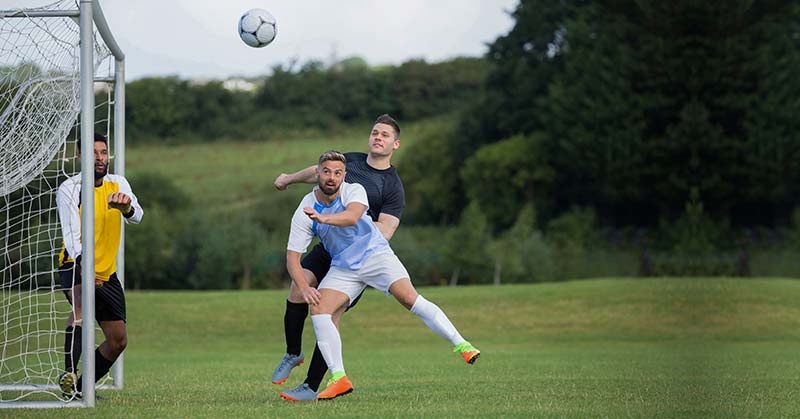Being a youth football coach is a role of immense responsibility, where your influence goes beyond just teaching the game. Your ability to motivate and inspire young athletes can have a lasting impact on their performance, development, and overall attitude towards the sport. While coaching techniques and strategies are crucial, understanding the psychology of motivation and applying it effectively is equally important. Here are some comprehensive and practical ways to keep your young athletes engaged and motivated throughout their journey:

1. Set Clear Goals: Establish specific and achievable goals for both the team and individual players. Goals give athletes a sense of purpose and direction, encouraging them to focus on their progress and work towards improvement.
2. Provide Constructive Feedback: Offer feedback that is balanced between praise and constructive criticism. Acknowledge their efforts and accomplishments, while also highlighting areas where they can refine their skills. A supportive feedback loop promotes growth and sustains motivation.
3. Create a Supportive Environment: Foster an inclusive and supportive team environment where players feel comfortable expressing themselves. Encourage open communication, address concerns, and promote camaraderie among teammates.
4. Lead by Example: As a coach, you are a role model for your athletes. Demonstrate qualities like dedication, punctuality, discipline, and a genuine passion for the sport. When athletes see your commitment, they’re more likely to emulate it. If you were curious about how to be a great boss, here is advice, lead by example.
5. Recognize Efforts: Celebrate both the big achievements and small victories. Recognizing their hard work, whether through verbal praise, awards, or mentions in team meetings, boosts their morale and motivation. Recognize not only major achievements but also incremental progress. When you have a great team behind your operation, you probably want to show them to the world and you can do it via the WordPress team plugin.
6. Individualize Motivation: Understand that every athlete is unique and may respond differently to various motivational strategies. Some may thrive on competition, while others may be motivated by personal growth. Tailor your approach accordingly. Use performance coaching to help individual employees find their strengths, weaknesses, and ways to improve.
7. Create a Positive Game Plan: Develop a game plan that leverages the team’s strengths while addressing areas that need improvement. Progress is a great motivator, and athletes are likely to stay motivated when they see improvements in their performance.
8. Emphasize Teamwork: Teach the value of teamwork and collaboration. When athletes feel they are part of a unified team working towards a common goal, they’re more likely to stay motivated and put in their best effort. It is also important for athletes to communicate outside the trainings as friends, hence it is a great plan to build an employee communication app to support their intercourse.
9. Provide Varied Training Sessions: Avoid monotony by incorporating a variety of drills, exercises, and activities in your training sessions. Keeping things engaging and dynamic prevents athletes from losing interest. Also, time management is important, so wasting time on the repetition of uniform exercises is unnecessary.
10. Offer Personal Development Opportunities: Motivation goes beyond the field. Organize workshops and sessions on leadership, sportsmanship, and life skills to develop well-rounded individuals.
11. Foster a Growth Mindset: Encourage athletes to adopt a growth mindset, where they see challenges as opportunities for learning and improvement. This mindset promotes resilience and a positive attitude towards setbacks.
12. Make it Fun: While the focus is on improvement and competition, remember that sports should also be enjoyable. Incorporate fun activities, team-building games, and light-hearted moments to maintain enthusiasm.
13. Build Relationships: Invest time in building strong relationships with your athletes. When players feel a genuine connection with their coach, they’re more likely to be motivated to perform well for you and the team. Memorize their important days like birthdays, and consider giving small presents. To save your time, you can order birthday gifts for everyone online.
14. Encourage Autonomy: Empower athletes to take ownership of their performance and development. Encourage them to set their own goals and involve them in decision-making processes.
15. Create a Positive Atmosphere: Fostering a positive and encouraging environment is essential. Positivity breeds enthusiasm, and athletes are more likely to stay motivated when they feel supported and appreciated.
16. Set Milestones: Break down larger goals into smaller, achievable milestones. Celebrating these milestones along the way keeps athletes engaged and motivated as they see their progress unfold.
17. Teach Sportsmanship: Instill values of sportsmanship and respect for opponents, teammates, referees, and the game itself. Encouraging good sportsmanship helps athletes develop a healthy and positive mindset.
18. Introduce Challenges: Incorporate occasional challenges or friendly competitions within the team. This can add an extra layer of excitement and motivation for players to consistently give their best effort. Coaches use this approach to contribute to building high performance teams.
19. Rotate Leadership Roles: Assign leadership roles within the team and rotate them periodically. This empowers different players to take charge, boosting their confidence and motivation.
20. Embrace Technology: Utilize technology to your advantage. Share motivational videos, training resources, and performance statistics that can inspire and engage athletes.
21. Rotate Positions: Give players the opportunity to explore different positions on the field. This not only adds variety but also helps them understand different roles, fostering a deeper connection to the game.
22. Showcase Role Models: Share stories of successful athletes who started from a similar background. These stories serve as inspiring examples of what can be achieved through dedication and hard work.

As a youth football coach, your impact goes beyond the field. By incorporating a blend of these motivational strategies, you can create a holistic and enriching experience for your athletes. Remember that motivation is an ongoing process, and the combination of these techniques can help you effectively inspire young players. By nurturing their skills, character, and love for the game, you contribute to their personal growth and equip them with valuable life lessons that extend beyond football. Your role is pivotal in shaping their athletic journey and building the foundation for their future successes both on and off the field.



